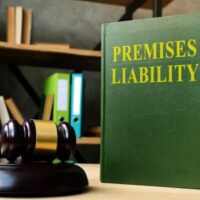Elements of Negligence in a Premises Liability Lawsuit

Those injured in slip-and-fall accidents or dangerous conditions that are present on another person’s property may be able to file a lawsuit against the property owner or company that exerts control over the property. Premises liability claims are a type of personal injury lawsuit that is filed against a homeowner or proprietor who has left a dangerous condition on the premises. To successfully bring a premises liability claim against a negligent party, you must be able to prove that they were negligent. In this article, the Tampa, FL premises liability lawyers at The Matassini Law Firm will discuss elements of negligence in a premises liability claim.
Foreseeability in a premises liability claim
Since slip-and-fall accidents are the most common form of premises liability claim in the State of Florida, we will use those as an example. To prove a slip-and-fall accident was the fault of a proprietor, the plaintiff must be able to establish that the employees of the company could have readily anticipated someone would be injured by a dangerous condition left on the premises. This means that the injury must have been foreseeable.
The proprietor must have known about the dangerous condition or should have known about the dangerous condition had they exercised an ordinary amount of care. Further, a litigant will be able to file a lawsuit against the proprietor if they created the dangerous condition on the property.
Types of premises liability lawsuits
Slip and fall injuries are by far the most common cause of premises liability claims in Florida. However, there are other types of premises liability claims as well. These include negligent security lawsuits in which a proprietor is held accountable for a lack of security on the premises that leads to injury. Electrocution accidents that occur on a premises can also give rise to a premises liability claim.
Any type of dangerous condition on a property that results in an injury is a valid form of a premises liability lawsuit.
Duty of care in premises liability lawsuits
Under Florida’s laws, property owners and managers do not owe everyone the same duty of care. The duty of care owed to the individual depends on their reason for entering the property. Those who enter the property are classified into three different categories: invitees, licensees, and trespassers. Invitees are those who enter the property to conduct some legitimate form of business. Customers, for example, are invitees. Invitees are owed the highest duty of care under Florida law. Licensees, on the other hand, are those invited onto the property for a social reason. Guests in your home are considered licensees.
Customers are generally owed the highest duty of care in premises liability lawsuits. That means that it’s easier to sue as a customer than it would be to sue as a social guest or a trespasser. Proprietors must keep their premises in a safe condition and regularly inspect the property or put up warning signs to alert customers about slippery floors.
Talk to a Tampa, FL Premises Liability Lawyer Today
The Matassini Law Firm represents the interests of those who have been injured due to a dangerous condition on another person’s property. Call our Tampa, FL personal injury lawyers today to schedule a free consultation and we can begin discussing your road to recovery immediately.
